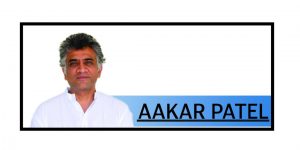This morning brought the headline “Centre’s silence on judicial postings condemnable: Supreme Court. ” The report said the government neither appointed the persons selected by the judiciary or communicated its reservation, if it had any, on the names. The court noted that it was a challenge to persuade “persons of eminence to be invited to the Bench” and that this behaviour by the government was “further discouragement to them to accept the invitation.
” I have a friend who recently suffered this and can vouch for it. The court concluded that the government’s tendency to inexplicably withhold names for months on end without explanation, “would see rule of law and justice suffer. ” Yes, it will.
I am making a larger point and will get to it soon. Near my house is the Madras Sappers regiment. On its gate there is the number 1780.
It is the year that the regiment was founded on 3 September, meaning that it is 242 years old. There are no government institutions of that age anywhere on the subcontinent. The reason that the army has survived in this fashion for so long is of course because it is efficient and functional.
This two-century-old army’s recruitment was changed earlier this year. From here on three fourths of the jawans will be retired after four years. They will be given six months of training and then asked to handle equipment that has cost the nation millions of dollars to purchase.
One retired general, writing his critique of the scheme said that “the government’s intention is to kill the Army’s regimental system, which is the bedrock of fighting arms and comradeship; ‘Naam, Namak aur Nishan; to be sacrificed through virulent application of ‘Sabka Saath, Sabka Vikas’. So what will fixed class regiments like say Rajput Regiment, Gorkha Regiment, Sikh Regiment be called? Will they be allotted numbers with police-ization of the Army or be renamed like ‘Savarkar Regiment’, ‘Mangal Pandey Regiment’, ‘Deen Dayal Upadhyay Regiment’ as being discussed on WhatsApp?” The army, navy and air force all will have this new scheme whose logic has not been fully explained. It has been whispered that the government is doing this because its pension bill is getting unmanageable but that is not the official reason cited.
We are meddling with an institution that was built for purpose and served its purpose for two centuries without transparency about why this is being done. Anyway, let us move on. India’s statistical programme was one of the jewels of the government.
Founded of course by Nehru, it has enjoyed a reputation for being solid and reliable. In 2019, just before the elections, it was revealed by the National Sample Survey Office that unemployment in India had more than doubled for the first time in history, and it had gone from 2. 2% to over 6%.
This report was withheld and not revealed, even to Parliament. This was the first survey on employment conducted by a government agency after demonetisation. Two members of the National Statistical Commission (NSC), including its interim chairman, resigned, saying that the government had withheld the report’s release despite the NSC’s approval.
Niti Aayog was sent out to discredit the data of the government’s own report but it was released without change after the 2019 results were out. A survey by the government conducted between July 2017 and June 2018 showed something astonishing: the average amount spent by Indians in a month had fallen in 2018 compared to 2012. Adjusted for inflation, the average fell from Rs 1,501 to Rs 1,446.
The report revealing this said that in the last 50 years there had never been a time that consumption had decreased, and that such a fall indicated an increase in poverty in the country by at least 10%. The most worrying trend in the report was a dip in food consumption. The amount spent on food by urban Indians remained flat at Rs 946 per person per month in 2018 compared to Rs 943 in 2012.
But rural Indians were spending less on food in 2018 (Rs 580) compared to 2012 (Rs 643). India usually recorded an average increase in consumption of around 3% a year, and a fall over six years suggested a fall in consumption of around 20%, wiping out years of progress. The report was approved for release by a committee on 19 June 2019.
But, like the unemployment data, was not released and still has not been, even though the former chief economic advisor asked for it to be made public. When approached for demonetisation, the RBI told the government specifically that the scheme was bad and should not be allowed to proceed. It said most black money was held as land or gold and not cash, and abolishing currency would have no effect on curbing black money.
And that demonetisation would have a negative impact on GDP and that Rs 400 crore in counterfeit currency was insignificant (only 0. 02 per cent) compared to the total cash in circulation, which was Rs 18 lakh crore. But of course the RBI rubber stamped the decision anyway and then refused to release the minutes of the meeting where the above was released.
Today the bureaucrat who oversaw demonetisation is the governor of the RBI. That brings me finally to my point. The most important institutions of our democracy have been and are being undermined with almost no resistance.
One fears for what is to come. .
From: orissapost
URL: https://www.orissapost.com/destroying-institutions/



